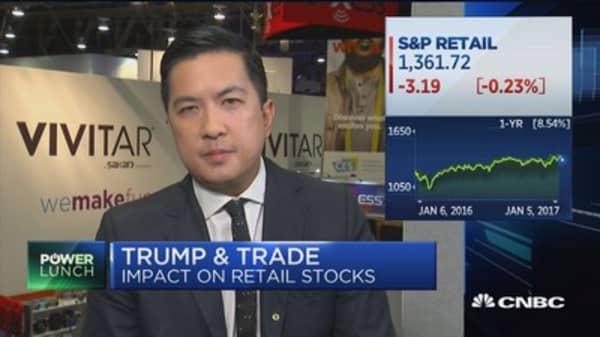Long-term trends are buffeting short term retail sector results. News that Sears is selling its Craftsman Tools brand and that Macy's is cutting thousands of jobs really drive home the shift in shopping habits onto the web. The Sears deal suggests the company burning the furniture to heat the house, selling Craftsman to Stanley Black & Decker for about $900 million to stem the cash bleed. The problem is that if you can't get tools at Sears of all places, what's next, doing away with the washing machines? Well, Eddie Lampert, the hedge fund manager turned CEO, lent the company $500 million earlier this week and is talking about selling the Kenmore Appliance and Die Hard battery brands, too.
Meanwhile, middle and upper middle class shoppers have turned their backs on Macy's as it goes full throttle with its JC Penney-style couponing and down market brands. Seven straight quarters of declining revenues are in the books and the company is warning the Street of more bad news ahead. The Cincinnati-based retailer projects sales will be down 2.5-3 percent this year. The company announced plans to close another 100 underperforming stores with 68 of them to be shuttered this year.





